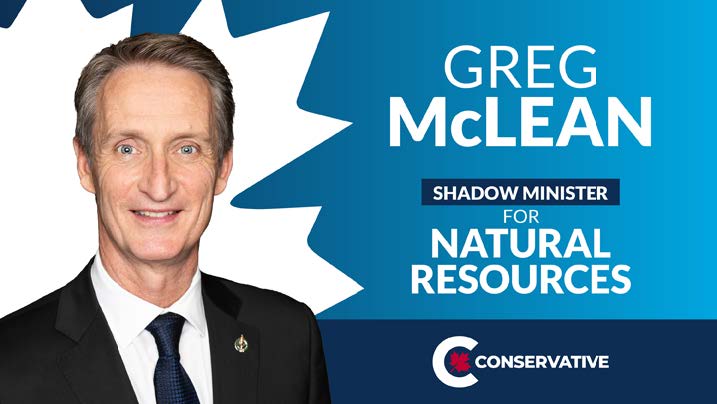E-Newsletter
February 24, 2022

SPECIAL ISSUE: EMERGENCIES ACT
On Monday night, Parliament invoked the Emergencies Act by a vote of 185 to 151, with the Liberals and NDP voting “yes” and the Conservatives and Bloc Quebecois voting “no”. Just two days later, on Wednesday night, Mr. Trudeau withdrew the act, raising questions about whether it was ever needed at all.
I voted “no” to invoking the Act. I acknowledge that my constituents in Calgary Centre are deeply divided on this measure. I received – and reviewed – thousands of e-mails, voice-mails and social media messages. All expressed views that were strongly held, often well argued, and always insistent about what I should do. It would be impossible to make everyone happy.
I believe in the right to peaceful protest in a democratic society. Remember that the occupation of Ottawa began as a peaceful protest against a federal policy – that after two years of safely crossing the border to bring supplies to Canadian families and businesses, the Liberal government decided that all truckers now had to be fully vaccinated. That’s what started this. Even many fully vaccinated truckers protested that the government would make a medical intervention mandatory.
Unfortunately, as opposition to the measure grew, it also embraced some people who chose illegal tactics. The blockades were illegal. Many of the protesters were peaceful and cooperative; but others were not. I cannot support illegal acts that compromise the rights and freedoms of other people. It had to end.
Where I differ from the government is on the need for sweeping centralized powers in order to achieve that objective. The authorities have access to laws and tools that enabled them to end the protests. They demonstrated that in Windsor, Coutts and other locations where police broke up barricades without need of the Emergencies Act. Even towing – often cited as one of the reasons the Emergencies Act was needed – is provided for in the Criminal Code. The ability to trace illegal financial transactions and block accounts is already available in law. The ability to send in reinforcements to help the Ottawa police was possible without the Emergencies Act. Mr. Trudeau now acknowledges that, by withdrawing the Emergencies Act and saying that police have the tools they need should protests resume.
I fundamentally believe that government should choose a lighter hand whenever possible. This government chose not to try to de-escalate the citizens’ expression of discontent, but to throw fuel on the fire by refusing to listen to their concerns, and even calling some protestors quite ugly names and dismissing their opinions as “unacceptable”. It was mismanaged, resulting in the last-minute “nuclear option” of this Emergencies Act.
Experts will argue whether or not the government met the high bar to invoke this Act. I think it did not, because the Act requires that it be a situation that cannot be handled using existing legislation. I believe existing legislation is sufficient to break up illegal protests, and I believe we have the evidence from the other blockades.
We should also be concerned that just minutes after the vote, two Cabinet Ministers (Ministers Blair and Mendicino) mused that the Emergencies Act could be extended beyond the 30 days allowed in law. The Finance Minister has also suggested that some of the financial measures should be made permanent. With the blockades gone and illegal acts halted, why are these emergency measures needed for a longer period, or even forever? That is the risk of such over-reach. Governments become accustomed to the convenience of the power. By withdrawing the Act, the Liberals seem to have acknowledged the folly in extending it.
So while respecting the views of constituents who felt something simply had to be done – and I understand that view – I voted “no” because I felt there were equally effective, less heavy-handed tools available to get it done.

NEW CRITIC ASSIGNMENT: I’m Moving Back to Natural Resources
Since the start of this Parliament, I’ve been pleased to be the Vice Chair of the Finance Committee, focusing on inflation, debt and deficit, over-spending, and other issues close to my heart and my expertise.
With a new Conservative Interim Leader, I have a new assignment. I am going back to the role of Shadow Minister for Natural Resources, a position I previously held in the 43rd Parliament.
While I will miss focusing on the financial issues, Natural Resources is also one of my areas of expertise, and is exceptionally important to the constituents of Calgary Centre and all of Alberta. This Liberal government needs strong opposition vigilance on the resources file, given their natural inclination to think the industry unworthy, despite the $25 Billion a year it pours into multiple government coffers.

GOVERNMENT PLANS FOR FINANCIAL TRANSACTIONS
One of my concerns about the Emergencies Act was its provisions for the government taking close control over individual Canadians’ bank accounts and other financial transactions. While the Act has been revoked, the Finance Minister nonetheless mused publicly that some of the financial tools should become permanent.
There are both obvious and less-obvious possible implications to this power.
Obviously, people who donated modest amounts to the protest movement – especially before it began to take illegal actions – should not have their bank accounts frozen. The government says it won’t do that, but many people have nonetheless expressed their worry. This government has changed its mind before, saying one thing and then changing the rules in the fine print.
On Thursday Feb 17, Justice Minister David Lametti told CTV’s Power Play: “If you are a member of a pro-Trump movement donating…to this type of thing, then you should be worried.”
The government says it would give a list to the banks, but how will individuals be selected to be on that list and have their assets frozen? What is the criteria? Will actions taken under the Emergencies Act remain in force even though the Act has been revoked? Will people have a means to appeal? How long will it take to get their assets back if shown to be blameless? Under the Emergencies Act, there is no need for a Court Order. At what point may people call upon the
judicial system to evaluate the government’s actions against them, including retroactively if government made an error while the Act was in force?
There are less obvious implications. Worried people might start removing their funds from banks, to protect their assets. Where will that money go?
Consequently, I proposed at the Finance Committee that the Committee should study this issue in some depth. That motion passed, and the study will be ongoing notwithstanding that the Act has now been withdrawn.
I’ve said all along that existing legislation can manage the illegal acts related to the protests. That applies in the case of monitoring, identifying and punishing illegal financial transactions. The question here is what did the government intend to do with its new powers? Why would the Finance Minister want to make some of her Emergency Act powers permanent? What power does she need that she doesn’t have today, and what does she intend to do with it?
I raised this in the House of Commons during debate on February 19, asking:
“Would the member reconsider the notion of stigmatizing the bank accounts of people who donated a small amount to people they supported in these protests as they came to Ottawa, when they were protests, who now have the prospect of having their bank accounts frozen as a result?”
In the House on February 21 I continued this line of questioning: steps had to be taken to end illegal blockades and acts, but we don’t need the Emergencies Act to do it. We have all the tools we need in existing legislation. In this question in the House, to Don Valley North MP Han Dong, I asked why emergency powers are needed to monitor crowd funding platforms when it is already part of our FINTRAC mechanism. Mr. Dong spoke about foreign money supporting Canadian protests (and this would certainly not be the only protest foreign money supports) but failed to identify why new powers are needed to do what we can already do.
I also followed this line of questioning at the Finance Committee meeting on February 22. I questioned officials on the fine print of freezing Canadians’ bank accounts for having supported a protest. Officials acknowledged that the Act does permit them to freeze accounts for even minor donations of $20 or $50, so long as the donation was after Feb 15 (the Act is not retroactive so donations prior to Feb 15 are not considered). I pointed out that the Act is very vague on how a person can prove they are no longer involved and thus get their accounts back again. No answer to that.
MY SPEECH ON THE EMERGENCIES ACT
If you missed it (it got over 34,000 views on YouTube – far in excess of my usual audience!), you can watch my 16- minute speech with Questions and Answers on the Emergencies Act here. If you prefer to read the text, it is posted on my website under the News tab.
EVENTS COMING UP
This Facebook Live event will be especially lively, I predict, given the events of the past few weeks:

FACEBOOK LIVE
IN PERSON MEET AND GREET – Killarney Glengarry
Please get in touch if there’s anything my office can do for you.
Greg McLean, M.P.
Calgary Centre
403-244-1880
Greg.McLean@parl.gc.ca
GregMcLeanMP.ca